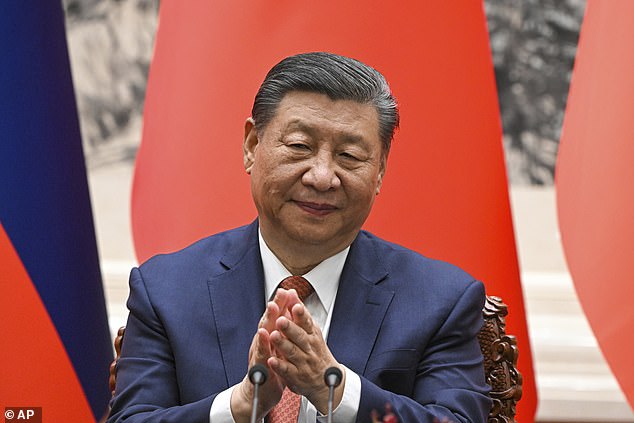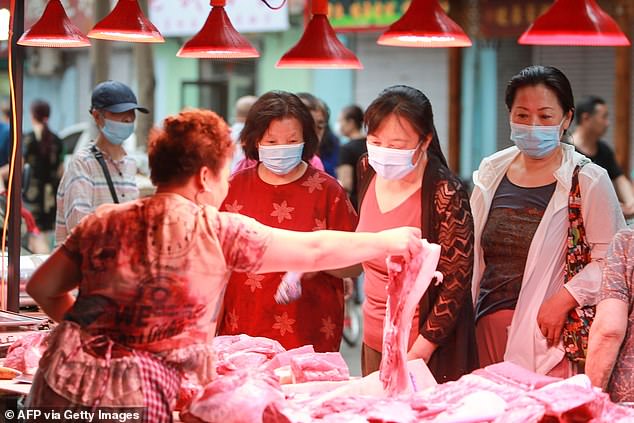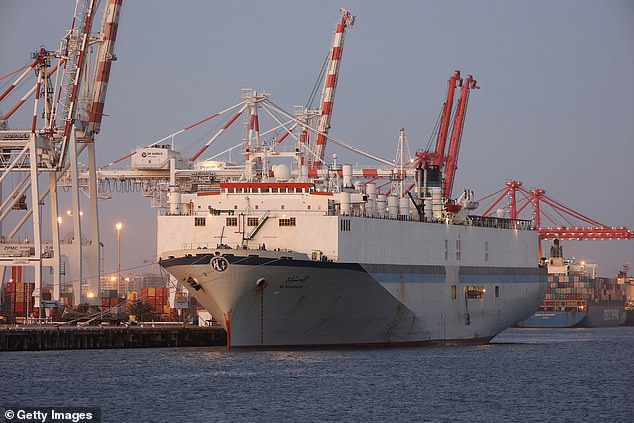China has lifted suspensions imposed on Australian beef exporters, removing almost all of the $20 billion worth of trade sanctions it imposed.
Agriculture Minister Murray Watt said Beijing on Wednesday night lifted the bans, with immediate effect, for five different slaughterhouses.
“It’s fantastic news for livestock producers, for the meat processing industry and for workers in those industries,” he told ABC News Breakfast on Thursday.
Growers of barley, cotton, oat hay and timber have been boosted by China’s lifting of trade limits. An Australian export ship
“The work we have done to stabilize our relationship with China is paying real dividends.”
The sanctions against two slaughterhouses and rock lobster remain in place.
The announcement precedes Chinese Premier Li Qiang’s high-level talks with Prime Minister Anthony Albanese next month.
Li is expected to arrive in Canberra in mid-June.
Beijing imposed sanctions on Australia in 2020 at the height of a diplomatic row between the two countries, after the previous Morrison government called for an independent investigation into the origins of COVID-19.
China has progressively removed trade barriers to Australian exports since the Labor Party took power in 2022.

China has progressively removed trade barriers to Australian exports since Labor came to power in 2022. Pictured: Chinese President Xi Jinping
With renewed access to Australia’s largest trading partner, growers’ exports of barley, cotton, oat hay and timber have increased by more than $3 billion over the past year and a bit.
Senator Watt said he was proud to have helped put billions of dollars back into the pockets of primary producers.
“We have repeatedly said that we will seek to cooperate with China where we can, disagree where necessary and commit to our national interest,” he said.
“That national interest includes the success of Australia’s timber workers and barley, cotton and hay farmers.”
The $3 billion figure does not include increased profits from the resumption of wine sales to China after Beijing removed a 220 percent tax on Australian wine in March.
In 2019, Australian wine exports to China amounted to $1.1 billion.
Even if all tariffs are eventually removed, Australian trade with China is unlikely to fully return to pre-COVID levels.

Customers buy meat at a market in Shenyang, northeast China’s Liaoning province.
Affected sectors have sought to diversify their export markets since the overnight drop in sales highlighted the dangers of putting all one’s eggs in one basket.
China accounted for 43 per cent of all Australian exports at the time, but that figure had fallen below 30 per cent by 2022-23.
“That’s why from the beginning, the government’s focus has been on urging to send a diversification message to Australian industry,” Assistant Trade Minister Tim Ayres said in March.
The government has helped producers expand their access to emerging and growing foreign markets, with $198.2 million in subsidies aimed at reorienting the country’s trade.

